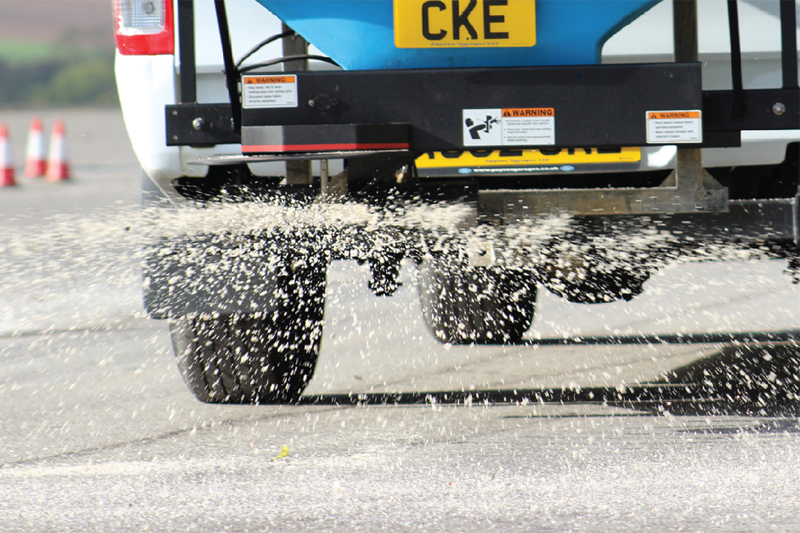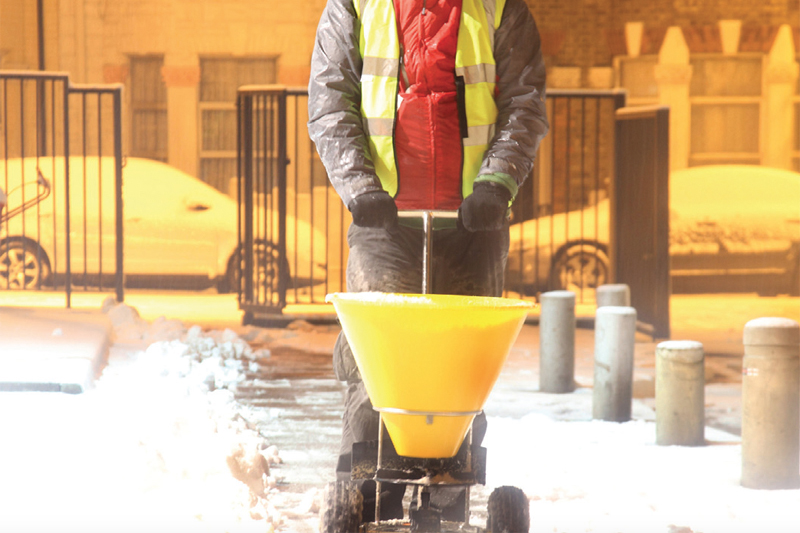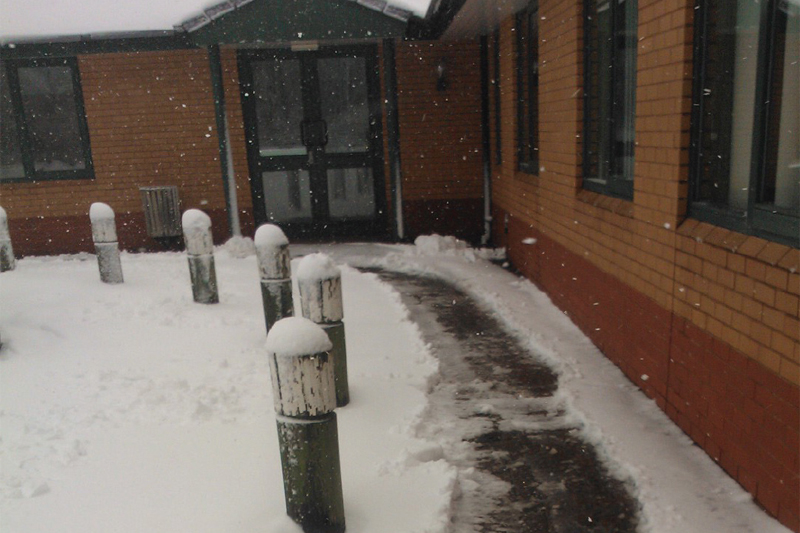
Brendan Aherne, Managing Director of Winter Services at Outco, offers some advice to workshops for effective winter planning.
Whether it’s protecting your staff from obvious risks like the safe use of lifts and pits, less visible hazards like harmful particulates, or the long term effects of noise and vibration, workshop managers are already accustomed to taking a proactive health and safety at work.
However, winter weather brings a whole new set of variables and potential risks that require vigilance, planning and proactive action – not least to ensure that you can keep your doors open when bad weather closes in.
The past year has made the Met Office’s history books for some of the chilliest UK weather on record, with February temperatures dropping well below -20OC. While these kinds of temperatures are by no means unheard of in the UK, “extreme weather events” are becoming more commonplace. These kinds of dramatic and volatile temperature swings make it very difficult for businesses to prepare for the risks of wintery conditions.
This is a challenge affecting every industry: research by the Institute of Workplace and Facilities Management (IWFM) found that almost a quarter of their members said that their organisation doesn’t have a winter maintenance plan in place – and of those that do, 26% fail to review it annually.
The cost of slips, trips, and falls
The Health and Safety Executive (HSE) estimates that around five million days are lost each year through workplace injuries, costing the UK economy billions of pounds. Slips, trips and falls account for over a third of employee injuries – making up more than half of all reported major/specified injuries and almost 29% of over-seven-day injuries – and more than 50% of such accidents take place during the coldest months of the year. These statistics serve as a chilling reminder to all businesses of their responsibility to protect people from the risks of slips and falls in icy conditions.
Meeting your duty of care
The Health and Safety at Work Act 1974 states that an employer has a duty of care to ensure, so far as is reasonably practicable, the health, safety and welfare at work of all employees, including the provision of a safe working environment. For CV operations, this duty of care also extends beyond staff to anyone visiting, or passing by the facility, including suppliers on company business.
As a result, every organisation must be able to demonstrate that they have done everything reasonably possible to meet their duty of care. Any plan has to ensure compliance with all health and safety legislation and that effective steps have been taken to make sites safe for staff and customers during harsh winter weather. Clearly, this is more than an administrative matter: failing to get things right can have a major effect on any individuals that come to harm and also to an organisation’s reputation and its finances. There is also the risk of legal action. Over the past few years there has been an increase in litigation with ‘slipping on ice’ accidents having the potential for the highest value claims and compensation.

Data driven compliance
Like virtually every other industry, outdoor facilities management is becoming increasingly data driven – and this is how Outco approaches winter operations. For example, a site visit to clear snow and ice from a forecourt would be triggered automatically by detailed road surface temperature forecasts. At the same time, data brings more transparency and peace of mind to customers: the actions taken to mitigate adverse weather can be tracked by customers in real time and used to create robust records that can be used in the event of incidents.
Not only are Outco’s site visits logged the moment a gritting vehicle enters a geofenced area (as defined by its GPS coordinates), but its gritting crew’s movements and activities can be tracked via the smartphones app they use to manage and record their jobs. Furthermore, that information can be shared with customers too to ensure that they have clear line of site as to how and when access roads and forecourt areas have been cleared. This kind of detailed real-time intelligence and up to the minute automatic reporting ensures that companies remain safe, operational and completely compliant, even during the harshest of winters.
A winter maintenance plan
Just like every other area of the commercial vehicle industry, bringing a proactive and fully managed approach to winter maintenance can help prevent accidents and mitigate potential liability claims. Ultimately, this comes down to having a robust winter maintenance plan that is embedded into an organisation’s health and safety policy. By doing so, businesses can meet their duty of care, achieve compliance, manage risk, and meet insurers’ expectations. Furthermore, when the bad weather does arrive, acting on the basis of a clear plan can be key to ensuring business continuity.
Your adverse weather policy should clearly communicate how your organisation will manage/take action in extreme weather situations. Key aspects of any effective plan include:
- Use of a recognised health and safety management system such as OHSAS1800115 to ensure the plan is fit for purpose.
- Clearly defined and communicated responsibilities – both on the ground and with a senior ‘champion’ to ensure high level management buy-in.
- A process for documenting the proactive actions, incidents and investigations undertaken with records maintained and kept for a minimum of three years.
- Ensuring the plan is based on detailed surveys to identify hazard areas and that action is undertaken according to real time accurate weather data and agreed action triggers for service.
- Adequate resourcing with either professional contractors or a dedicated trained in-house team, sufficient and well-maintained PPE.
- Clearly defined KPIs to measure performance against and a process to review the plan and any KPIs on a regular basis (at least bi-annually).

Don’t leave it to the last minute
A carefully considered winter maintenance plan will be an essential part of your Health & Safety toolkit, ensuring the safety and productivity of everyone on site. Ultimately, the process of developing such a plan should start months ahead of winter. If your organisation is one of the quarter of UK businesses without a plan (and presumably having to respond in an ad hoc manner to current conditions), then now is the time to take stock of the scope of the challenge and evaluate your organisation’s response. The lessons learned this winter will be invaluable for developing an adequate plan for the future. This is equally true for businesses that have prepared but perhaps not been following best practice to regularly review their planning: once the pressure is off, take time to review and seek opportunities to improve.
Can you really afford not to?
One of the most fundamental reasons that the UK always seems to lag behind other countries in managing extreme weather is that preparedness costs money. However, the short-term costs of effective planning pales into insignificance compared to the financial and reputational risks to an organisation of being found negligent and failing to meet its duty of care.








